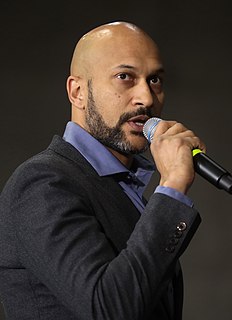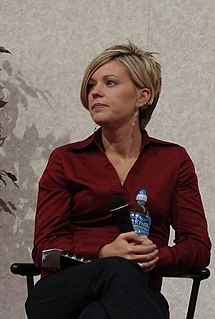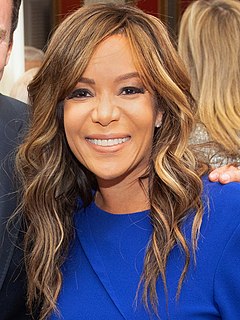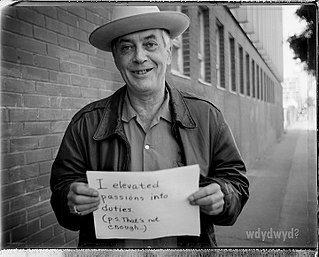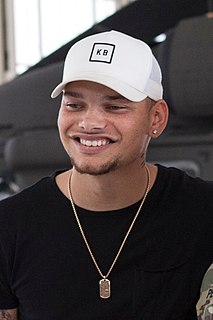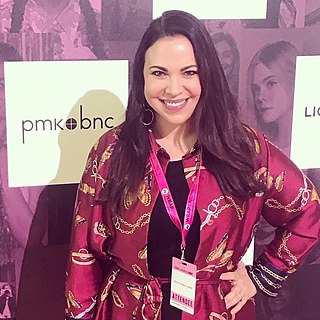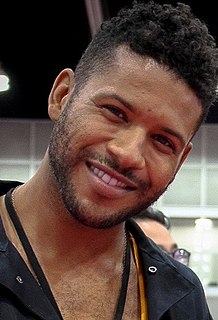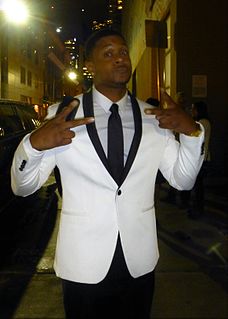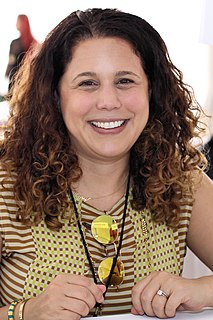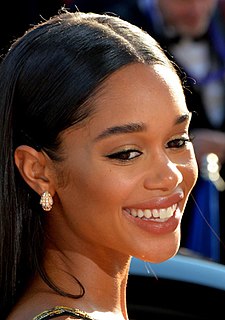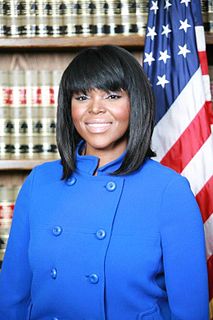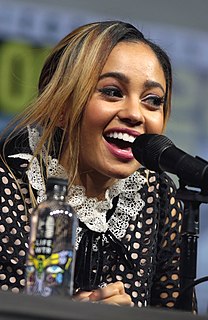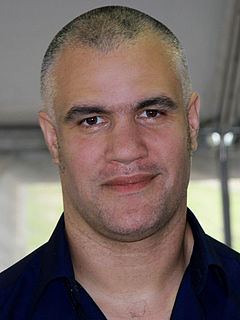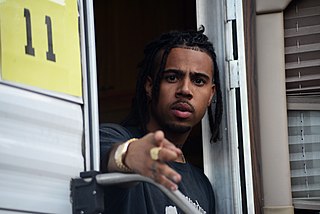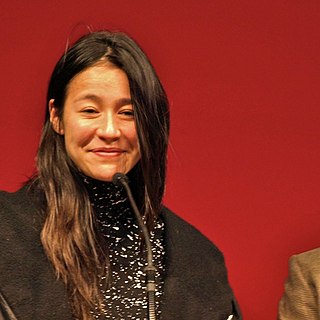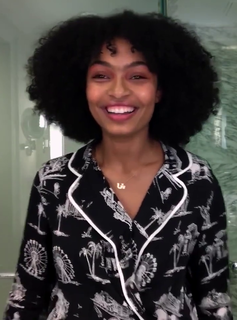Top 46 Biracial Quotes & Sayings
Explore popular Biracial quotes.
Last updated on April 20, 2025.
When I say my work is travel, that's what I'm doing. And part of being biracial and multicultural is I'm always playing with genre and genre expectations. So even if I say I'm doing straight memoir, you'll see that I'm doing weird stuff with the structure. I've got images, I've got lyrics, and I've got journalism. I really try to not get stuck in genre expectations.
Lincoln has accepted America as a biracial society. He's talking about giving at least some black men the right to vote. In the Emancipation Proclamation he advises some blacks to labor faithfully for reasonable wages, here in the United States. He doesn't say anything about them leaving the country. He puts black men in the army. That is a whole different vision than simply saying "let's have them go out of the country." I think what's interesting is the change in Lincoln's view, but one must realize that he did adhere to this idea of colonization for many years.
I'm proud to be biracial, and there's a lot of people that say things like, 'I don't see color,' and I completely understand that, but I think different is beautiful, but I think our difference shouldn't separate us, and for me in this era, in this time, in everything that we're going through, my whole thing is just about unity, man.
I'm lucky because I have so many clashing cultural, racial things going on: black, Jewish, Irish, Portuguese, Cherokee. I can float and be part of any community I want. The thing is, I do identify with being black, and if people don't identify me that way that's their issue. I’m happy to challenge people's understanding of what it looks like to be biracial, because guess what? In the next 50 years, people will start looking more and more like me.
My hope as an actress is knowing that I'm someone who is more privileged - I'm biracial and lighter-skinned - and I hope it can open up the door for more women of color, especially darker-skinned black women. I hope everyone hops on the bandwagon and decides to start putting women of color in movies that aren't just about race.
I think it's really cool that someone could have ovaries and the presidency. Growing up, I thought I could never be president because I was black and female. Now I know that's wrong. Within my own lifetime - that's different. Within my lifetime, interracial couples are more common. Within my own lifetime, biracial folks are able to claim that.
I think being biracial is a different experience. I think that, and coming from the U.K., I feel as much white as I do black. And so it's really important for me to address these issues of identity in my work. But also, you know, we're always stronger when we work on, you know, what we have in common. And I love exploring that in my work.
